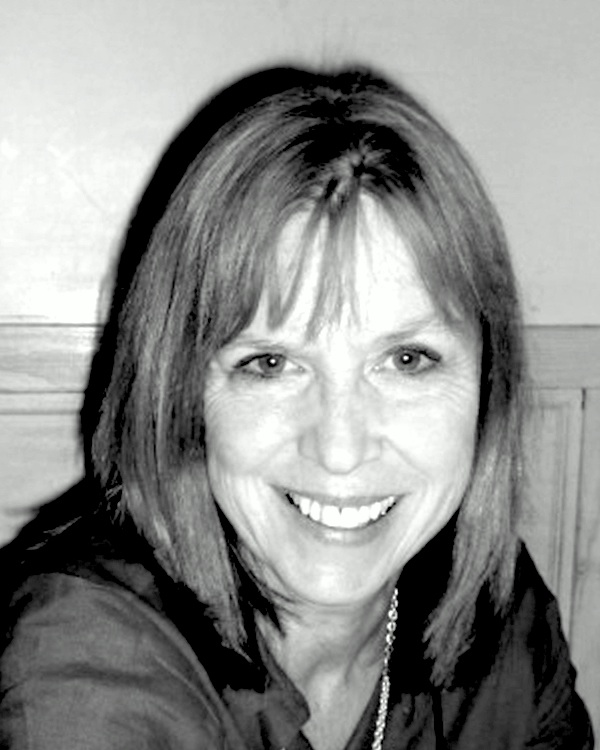By Jess Wells
I was standing on a street corner when I felt the tilting and, though it might have been someone’s brakes or the door to the diner behind me, it sounded like the screech of old metal pressed into service. Two dapper young lesbians walked by in perfectly pressed tuxedo shirts and short hair, dressed for night though it was early morning, striding in that way that my sisters walk, but even in San Francisco discreetly not holding hands. For 23 years of my lesbianism, dapper butches had been my favorite. A woman in slacks. Cognac, the New York Times, erudition.
But today, as a single lesbian mother, I clutched my son’s hand tighter and felt chilled by how remote they seemed. I had left yet another relationship but this break-up was more devastating, more profound. Three years of cautious weekends and separate arrangements only to hear “Gosh, I don’t really want to be in a family.”
I had been an idiot, I see that now: I thought we could win her over, that time would draw her to this marvelous life spent raising kids, and to my incredible child.
After she left I started dating, but was told by my beautiful, witty artist that she “didn’t want kids.” And not knowing any better, telling her that I didn’t want her to discipline my child or cover my finances, that I could keep my family life separate. How deluded was that? She knew better, and disappeared.
No, separate wasn’t going to work. It was family or celibacy and my friends point out that I’m really not built for celibacy.
Searching the internet, this time for lesbians who clearly stated a desire to be in a family, I found only femmes. Any woman who checked the box “would consider it” was ruled out. “Yeah, I like kids,” they’d say, and it sounded like “Sure, I like…dogs.” I wasn’t going through that again, have some woman exercise her right to change her mind, or become involved only to reject us.
It was a slow, cautious business. You can’t move too quickly when kids are involved, you can’t have flings, or give it a try. They take it personally. They believe in happily-ever-after. They want and need things settled, and they’re incredibly traditional about parents. Serve them a sippy cup you’re a parent in their eyes. But I’m not a woman to be alone. I didn’t know what to do.
Taking one last look at the lesbian night owls, I saw a man coming up the walk, pushing a stroller with another kid in a shoulder pack. He was in his early thirties, though sleep-deprivation made him look older. He schlumpped down the street, his socks mismatched and his bed-head hair ignored. The stroller rider had a bottle and was well-tucked into blankets and the backpack rider was bouncing up and down on the lumbar rung in that giddy callisthenic that makes a parent seem to be trudging through sand. You could tell he was tired, that his needs came second, that someone was at home reaping the rewards of his generosity. And that he was happy about that. He had the strength and self-confidence to live in the wrinkled world of parenting. Believe me, it takes a lot of confidence and exhaustion (or is it good values and clear priorities?) to make you not care if your clothes match.
And that, it turns out, was the crux of my becoming bisexual, to jumping the fence, or deserting the flock, or throwing in the towel: The sexual allure of nurturance drew me in. There’s nothing sexier to me than evidence of generosity.
There is a sensuality to parenting. It sure isn’t dapper, but it’s very sexy.
People will grant you that parenting is a different world, but I’ve never heard that it’s got a really hot streak to it. That care of children is a parent’s foreplay. And I hadn’t expected that a rumpled dad with happy kids would be way more attractive to me than a dapper someone focused on themselves.
I knew that family life was a different world, but I didn’t know that the world of good parenting is so all-consuming, so entirely defining, that it can transcend the confines of gender, orientation, and social definition. It’s not just that you spend all your time with parents, it’s that the ability to focus on someone else is an indicator of a heart that’s open and giving. And that’s about as hot as it gets.
It was a surprise to me that it would be easier to find a man willing to put someone else first, to devote himself to nurturing, than a woman. It was a surprise to me that it was damn hard to find a lesbian who didn’t lean back and proclaim to be “too selfish for kids.” And so began the journey of discovering that some of our lesbian mainstays just weren’t true for me anymore.
Editor’s note: This is the first part of a nine-part story called “The See-Saw Family.” The rest of the story will appear in future issues of Bi Women, as will an interview with the author.
Jess is the author/editor of a dozen volumes of work, including the novels The Mandrake Broom (historical fiction), The Price of Passion (lesbian erotica), and AfterShocks (modern drama). She is the recipient of a San Francisco Arts Commission Grant for Literature and a four-time finalist for the Lambda Literary Award. Her work and workshops can be found at www.jesswells.com.

